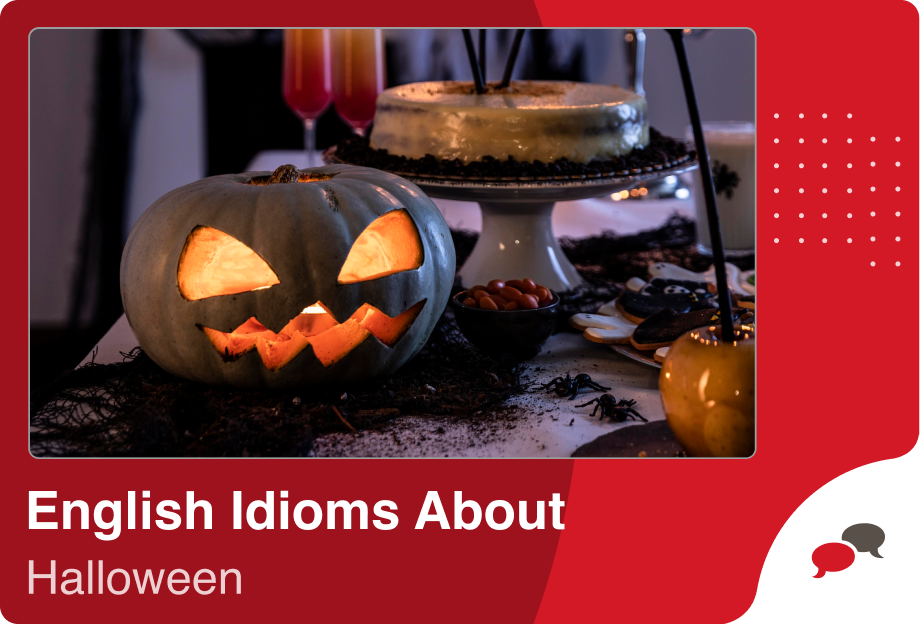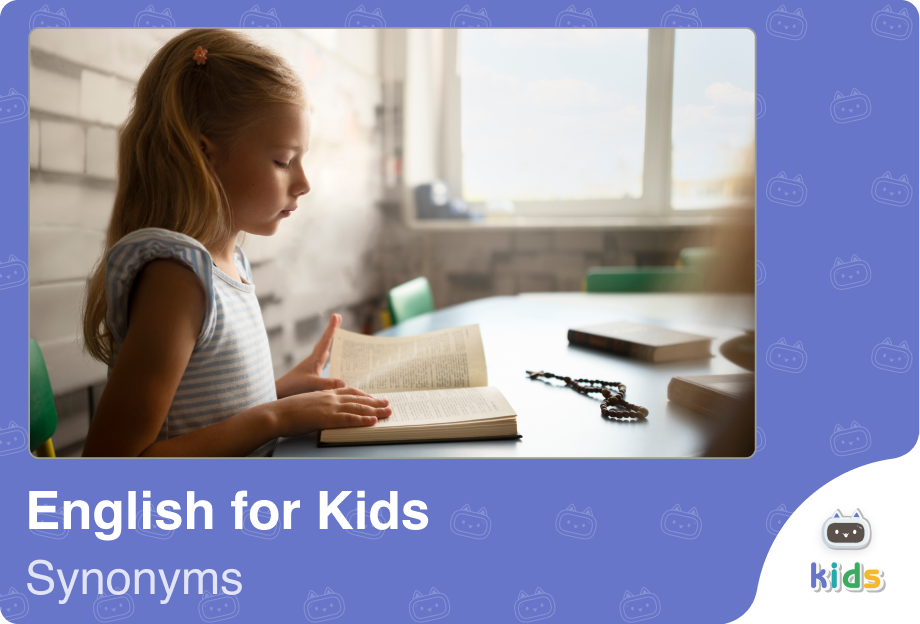Have you ever heard of words that mean the opposite of each other? Antonyms refer to these unique words! We’ll learn about antonyms, examine a few simple examples, and explore a list of opposite words you can use everyday in this blog post. To enhance your writing and speaking skills, you will learn how to use antonyms in sentences.
Learn English with EnglishCentral Kids
Would you like to take your child’s learning journey further? EnglishCentral Kids provides a fun and successful education with 25 minute one-on-one lessons for all ages and levels, along with lesson reports afterwards. There are fun and educational video lessons for your child to explore, and an AI tutor MiMi that will help your child with their English learning journey. Quizzes, interactive activities and entertaining vocabulary learning tools are gathered all on one platform and tailored according to your child’s level and needs.
Our courses are tailored to your child’s age, English level, and interests, making learning enjoyable and effective. Each course includes colorful videos, age-appropriate vocabulary practice, and engaging interactive activities.
Gamified elements and creative exercises encourage active participation, helping kids not only learn but also develop a positive attitude towards English.
Sign up to EnglishCentral Kids today for your child, keep learning and practicing!
What is Antonym?
An antonym is a word that is opposite to another word. It’s like when one word goes one way, and the other word goes the other way! For instance, when it comes to up, the opposite is down, and when it comes to being happy, the opposite is sad. These opposite words are called antonyms. Many types of words can have antonyms, including descriptive words (adjectives), action words (verbs), and others. By learning antonyms, we can improve our comprehension of words and make our sentences more entertaining.
List of English Opposite Words
| Word | Antonym |
|---|---|
| Answer | Question |
| Accept | Refuse |
| Admit | Deny |
| Asleep | Awake |
| Agree | Disagree |
| Alive | Dead |
| Always | Never |
| Bad | Good |
| Before | After |
| Best | Worst |
| Beautiful | Ugly |
| Beginning | Ending |
| Buy | Sell |
| Big | Small |
| Break | Fix |
| Cheap | Expensive |
| Close | Open |
| Cold | Hot |
| Complex | Simple |
| Cool | Warm |
| Correct | Wrong |
| Continue | Stop |
| Dark | Bright |
| Difficult | Easy |
| Different | Same |
| Dry | Wet |
| Early | Late |
| Few | Many |
| Full | Empty |
| Give | Take |
| Hard | Soft |
| Huge | Tiny |
| Poor | Rich |
| Push | Pull |
| Polite | Rude |
| Right | Left |
| Sad | Happy |
| Safe | Dangerous |
| Up | Down |
| Kind | Mean |
| Last | First |
| Brave | Coward |
| Forget | Remember |
| In | Out |
| Friend | Enemy |
| Heaven | Hell |
| Negative | Positive |
| Fast | Slow |
| Easy | Hard |
| Melt | Freeze |
| Love | Hate |
| Under | Over |
| Quiet | Loud |
| Young | Old |
| Thick | Thin |
Example Sentences About Antonyms
1-She answered the teacher’s question with confidence, while her classmate hesitated before asking another question.
2-Although he wanted to accept the challenge, he had to refuse because of his schedule.
3-The student chose to admit his mistake instead of trying to deny it.
4-Everyone in the house was asleep, but the cat remained wide awake, staring out the window.
5-While most students agree with the new rules, a few still disagree.
6-The garden looked full of life in spring, but by winter everything seemed dead instead of alive.
7-I always check my work twice, but he never does and often makes mistakes.
8-The storm brought a bad mood, but the sunshine made everything feel good again.
9-We arrived at the theater before the lights dimmed and left after the credits rolled.
10-That was the best vacation ever, even better than our worst one last year.
11-Her dress looked absolutely beautiful, but the muddy shoes made the outfit look a bit ugly.
12-The beginning of the book was slow, but the ending was full of surprises.
13-She plans to buy fresh fruit in the morning and sell lemonade in the afternoon.
14-The big mountain towered over the small cottages at its base.
15-Be careful not to break the vase — we worked hard to fix it last time!
16-The souvenirs were cheap, but the food at the market was surprisingly expensive.
17-Please close the door gently and then open the window for some fresh air.
18-The water was too cold for swimming, but the sun made the air feel hot.
19-That math problem seemed very complex, but once explained, it became quite simple.
20-The breeze was cool this morning, but by noon the sun made everything feel warm.
21-Her answer was completely correct, while mine turned out to be wrong.
22-Let’s continue working on the project until we finish, then we can stop and relax.
23-As the sun set, the room grew dark, but a lamp made it instantly bright.
24-Building a robot is difficult, but following the instructions makes it easy.
25-Their opinions were different, but they worked together to find the same goal.
26-After using the towel, it felt dry, but it quickly became wet again in the rain.
27-We arrived early to get good seats, but our friends came late and sat in the back.
28-There were only a few cookies left, but after baking, we had many more.
29-The pitcher was completely full, but after pouring, it was almost empty.
30-She wanted to give her friend a gift, but he was too shy to take it.
Frequently Asked Questions About English for Kids – Antonyms
Why is it important for kids to learn antonyms?
Children can develop a deeper vocabulary and a better understanding of word meanings by learning antonyms. It enhances their ability to compare and describe things, resulting in clearer and more effective communication. The use of antonyms is essential for both reading comprehension and creative writing.
At what age should children start learning antonyms?
Learning simple antonyms can begin as early as 4 or 5. At this age, they start to understand simple concepts like big/small or hot/cold. As they age and their language abilities improve, they are able to acquire more intricate opposites through conversation, reading, and play.
How can I teach antonyms to my child in a fun way?
Games, songs, and storytelling are all ways to make learning antonyms fun. Consider playing games that involve picture cards, singing songs about opposites, or reading books that highlight contrastive words. In everyday situations, such as comparing objects or describing the weather, there are great opportunities to naturally introduce opposites.
Can one word have more than one antonym?
It’s possible for certain words to have more than one antonym depending on their usage. When discussing brightness, the word ‘light’ can be the opposite of ‘dark’, or when discussing weight, the word ‘heavy’ can be used as a synonym for ‘light’. Kids can determine which antonym is the most appropriate by understanding the context.
You can access everything your child needs to learn English on a single platform! With 25-minute live lessons guided by teachers specialized in child education, entertaining and instructive interactive videos designed for child development, vocabulary learning tools, the AI Tutor MiMi, quizzes, and interactive activities, EnglishCentral Kids offers a personalized and quality education plan tailored to your child’s needs at affordable prices. How about registering for EnglishCentral Kids now and starting your child’s English learning journey?











